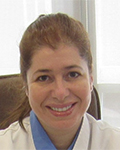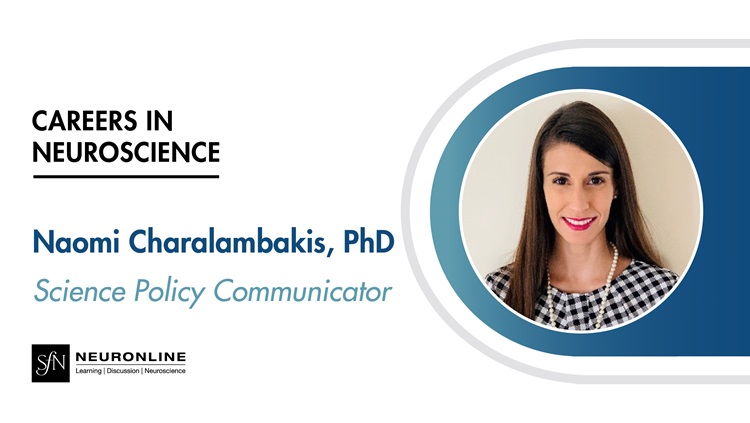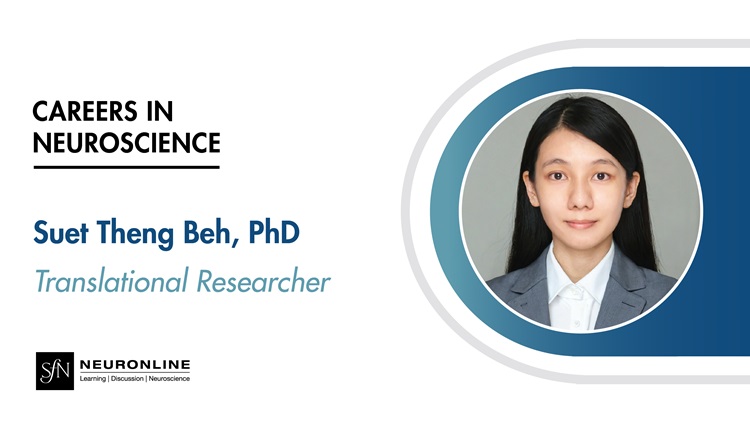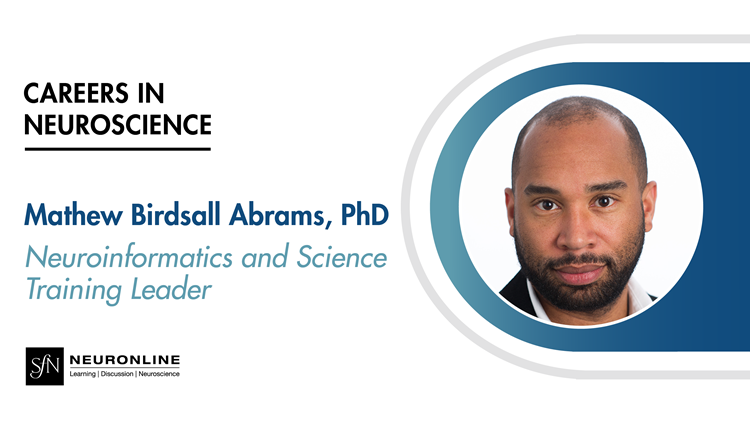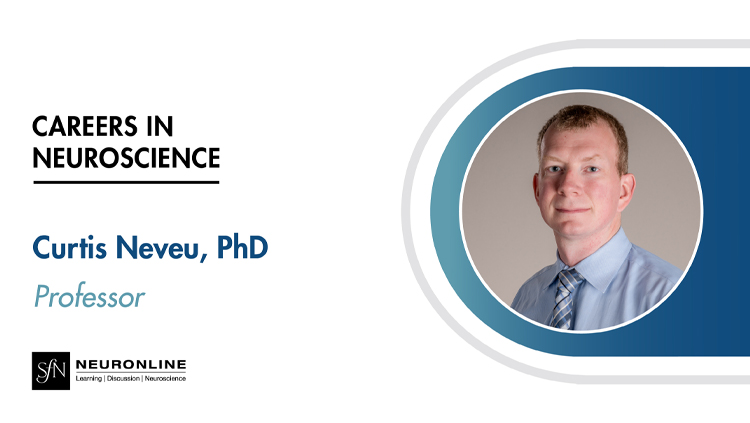Careers in Neuroscience: Neurosurgeon and Professor
- Featured in:
- Careers in Neuroscience
In this Careers in Neuroscience profile, learn about Valéria Marques Figueira Muoio, MD, PhD, a neurosurgeon and professor at University of São Paulo- Brazil. Muoio discusses how she decided to pursue neurosurgery, research, and teaching simultaneously, and the necessary skills for all three career paths.
What initially drew you to neuroscience?
From a very young age, I was deeply moved by reading a tale called "I, neurosurgeon". That experience awakened something visceral in me—a fascination with the complexity of the human brain. Even then, I realized that the brain is not just an organ: it is the seat of our individuality, memory, emotions, and consciousness. What attracted me—and continues to attract me—is the uniqueness of each brain. We are all composed of the same anatomical and physiological elements, yet every human being is absolutely unique. This duality between the universal and the individual captivated me profoundly. Neuroscience (neurosurgery included) offers a field where monotony simply doesn’t exist. It is an ever-evolving discipline, where there is always something new to learn, explore, understand, and apply. The combination of scientific reasoning, technical precision, and human connection makes this specialty not just a field of knowledge, but a true vocation.
How did you discover your particular interest within the field?
Throughout my clinical practice as a neurosurgeon, I have come to understand that being a neuroscientist is also an essential part of this journey. When I look at my patients, I don’t just see diagnoses—I see individuals whose lives are shaped by challenges that current therapies often fail to fully address. They need more—more treatment options, more alternatives, more choices. And only science can offer that.
Just as I strive to understand what is happening to each of my patients, I also want to actively participate in the search for answers. To me, research is not merely an academic exercise; it is an ethical commitment to human suffering. Neuroscience gives me the tools to go beyond what we already know, and to gradually build new possibilities for healing and relief.
What resources, experiences, or conversations helped you clarify your direction?
Conversations with mentors—both neurosurgeons and neuroscientists—also had a profound impact. Their insights helped me realize that clinical practice and scientific inquiry are not mutually exclusive, but complementary. These dialogues encouraged me to pursue research questions rooted in real patient needs. Attending international conferences and engaging with the broader neuroscience community exposed me to cutting-edge ideas and collaborative opportunities. These moments reinforced my conviction that innovation in neuroscience comes from integrating science and clinical care, and that I want to be part of building that bridge. Ultimately, it was this combination of early inspiration, lived clinical experience, meaningful mentorship, and exposure to global perspectives that solidified my direction as both a neurosurgeon and a neuroscientist.
Describe your current role. What are the most common skills you use on a weekly basis? Is your role "typical" to the industry?
As a neurosurgeon, I mentor residents in surgical skills, clinical reasoning, and a humanistic approach to care, helping them see each patient as a unique individual with distinct needs and recovery goals. I also encourage students and trainees to explore neuroscience and research—not only for its intellectual depth, but because it offers critical answers that can transform patient outcomes.
To me, neuroscience is more than a discipline; it's a way of thinking that embraces curiosity, discovery, and compassion. By integrating clinical training with scientific inquiry, I aim to cultivate neurosurgeon-scientists who are technically proficient and deeply engaged in advancing brain science.
This dual commitment—to teaching and research—ensures our work remains innovative and responsive to real clinical challenges. I believe bridging the operating room and the lab is essential to creating meaningful progress in how we understand and treat neurological conditions.
What educational background and training are required for your role? What other types of experiences are helpful to have?
My background in neurosurgery has a direct and meaningful impact on the research I am currently developing. We are developing experimental models of movement disorders and cerebral palsy, involving surgical procedures, device implantation, and cell culture techniques. These skills were progressively developed during my neurosurgical residency and refined through hands-on benchwork during my PhD. A solid clinical foundation allows me to design physiologically relevant, translational models. My surgical expertise enables me to perform complex procedures with precision, while my clinical experience ensures our research questions are aligned with real patient needs. This integration of clinical insight and neuroscience research empowers me to contribute meaningfully to the development of new therapeutic strategies. My goal is always to translate discoveries from the lab into practical treatments that improve outcomes for patients.
What factors should someone consider when deciding between a research-intensive vs. teaching-focused academic career?
The most important thing is to be honest with yourself. Every job has boring parts—paperwork, bureaucracy, endless forms. That’s just life. There’s this idea floating around that we should love our work 100% of the time, but that’s not realistic. What matters is finding something that gives you purpose and makes you feel alive most of the time. If you genuinely enjoy what you do, you’ll naturally do it better, be more creative, and create a better environment around you. So, think about what truly excites you—teaching, mentoring, working with people? Go for it. Do you prefer quiet focus, problem-solving, and lab work? Then research might be your thing. There’s no right answer—only the one that fits you. Think about what makes sense emotionally, intellectually, and even financially. And above all, don’t betray yourself. Make choices that are true to who you are and what you value—that’s where fulfillment begins.
How did you approach mentors for career advice? What strategies helped you build a professional network?
I’ve always been a very introspective and shy person and developing social skills took time. So, my first piece of advice is: be patient with yourself. For a long time, I felt nervous about approaching mentors or speaking up—but over time, I learned that if someone you admire shows openness, take that chance. Be comfortable in your own skin, but don’t be afraid to put on a brave face, face the fear, and start the conversation. It can lead to amazing opportunities.
Most of my mentor relationships started naturally—during rounds, meetings, or after talks—just by being present and asking honest questions. I always follow up and show appreciation. Networking, for me, isn’t about collecting contacts—it’s about building genuine connections based on respect. Showing up, supporting others, and staying curious have helped me build a meaningful professional community. Authenticity, patience, and courage open doors.
What strategies have helped you in job searching? Where did you look for roles? What platforms, organizations, or communities were most helpful?
When I first started job searching—about 20 years ago—it was a very different landscape. But some things never change. The most important thing is to be good at what you do—or at least show that you genuinely want to become excellent. Build confidence in your skills, be open to learning, and be willing to grow from your mistakes.
Another key is not being afraid of rejection. Reach out to serious people and institutions. Platforms like LinkedIn can be helpful, but no platform is free from scams or empty promises. So always ask around. Talk to people with more experience, and check if the opportunity is legitimate.
Also, try to connect with potential employers in a more personal, human way. Show that you're proactive, open to contributing, and eager to find solutions. In the end, jobs often come from relationships and reputation, not just from listings.
If you were a hiring manager, what experiences or skills would stand out to you on a resume for a role in your field?
If I were a hiring manager, I’d first look at the basics—whether the candidate has a solid background and the necessary technical knowledge. But beyond that, I’d focus on qualities that speak to character and collaboration. I value honesty, initiative, willingness to learn, and the ability to work well with others and contribute to a positive, respectful environment. Humility and the ability to grow from mistakes are essential.
While I know soft skills develop over time, proactivity really stands out. Unfortunately, many applicants focus only on what the job can offer them—which is fair—but it’s equally important to show what they can bring to the role. I want to see that a candidate is ready to add value to the team and contribute meaningfully to the project or institution they’re joining. That mindset makes all the difference.
What advice would you give to students or early-career professionals interested in this path? Are there opportunities for people to find jobs in your industry with a variety of degrees (bachelor's, master's, PhD)?
I believe neuroscience is one of the most fertile fields for work, study, and research. It’s deeply interdisciplinary, connected with mathematics, physics, biology, psychology, philosophy, and even humanities. Whether you hold a bachelor’s, master’s, or PhD, there’s space for you in neuroscience, depending on how you build your skills and interests. If you commit to learning and developing in this field, there are countless opportunities in academia, private industry, and beyond. You can do meaningful, honest work—work that serves humanity, brings deep personal fulfillment, and yes, can also support a stable and honest life financially.
My advice is: be curious, persistent, and seek excellence in whatever role you pursue. Don’t underestimate how valuable your unique background can be in a multidisciplinary field like neuroscience. There’s room for many paths—and many types of thinkers.

